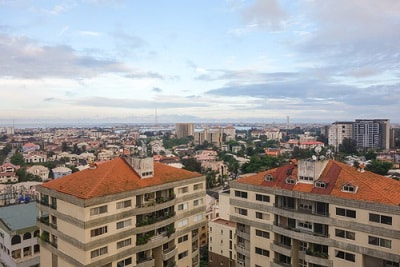Living in Nigeria can be challenging, but equally, rewarding.
Most Americans living in Nigeria are on a work posting, having decided that the career and financial benefits outweigh the challenges. As an American expatriate living in Nigeria though, what exactly do you need to know regarding filing US expat (and Nigerian) taxes?
All US citizens and green card holders who earn more than $12,550 (in 2021, or just $400 of self-employment income or just $5 if you’re married to a foreigner) anywhere in the world are required to file a US federal tax return and pay taxes to the IRS, regardless of where in the world they live or where their income originates.
The good news is if you are paying income tax in Nigeria, there are various exclusions and exemptions available to prevent you paying tax on the same income to the IRS too.
US taxes – what you need to know
If you earned more than US$12,550 (in 2021, or $400 of self-employment income etc), you are required to file Form 1040. While taxes are still due by April 15, expats get an automatic filing extension until June 15, which can be extended further online until October 15.
If you have overseas assets worth over US$200,000 per person, excluding your home if it is owned in your own name, you also have to file form 8938 to declare them.
If you had a total of at least US$10,000 in one or more foreign bank and/or investment accounts at any time during the tax year, you also have to file FinCEN form 114, otherwise known as a Foreign Bank Account Report or FBAR.
“Nigeria became the largest economy in Africa after debasing in 2014. As the seventh most populous country in the world, Nigeria is also rapidly expanding its infrastructure and witnessing foreign and domestic investment from major players in the engineering and construction industry as well as the telecommunications sector.”
– PriceWaterhouse Cooper
If you pay income tax in Nigeria, there are several exemptions that allow you to pay less or no US income tax on the same income to the IRS. The main ones are the Foreign Earned Income Exclusion, which lets you exclude the first around US$100,000 of foreign earned income from US tax if you can prove that you are a Nigerian resident, and the Foreign Tax Credit, which gives you a $1 tax credit for every dollar of tax you’ve paid in Nigeria. These exemptions can be combined if necessary.
The US and Nigerian governments share taxpayer info, and Nigerian banks pass on US account holders’ account info to the IRS, so it’s not worth not filing or omitting anything on your return. The penalties for incorrect or incomplete filing for expats are steep to say the least.
If you’re a US citizen, green card holder, or US/Nigerian dual citizen, and you have been living in Nigeria but you didn’t know you had to file a US tax return, don’t worry: there’s a program called the IRS Streamlined Procedure that allows you to catch up on your filing without paying any penalties. Don’t delay though, in case the IRS comes to you first.
Nigerian taxes – what you need to know
Nigeria taxes residents on their worldwide income. Nigerian tax rates are relatively low, ranging from 7% to 24%. You will be also liable for US taxes on Nigerian sourced income though, unless you claim one of the exemptions outlined above. Salaries paid in Nigeria are taxed at source. Nigeria also taxes capital gains at a flat rate of 10%.
You are considered an Nigerian resident if you spend at least183 days in the country in a tax year. The Nigerian tax year is the same as in the US. Nigerian personal tax returns are due by March 31. The Nigerian tax authority is called the Federal Inland Revenue Service.
We strongly recommend that if you have any doubts or questions about your tax situation as a US expat living in Nigeria that you contact a US expat tax specialist.

 Connect on LinkedIn
Connect on LinkedIn

